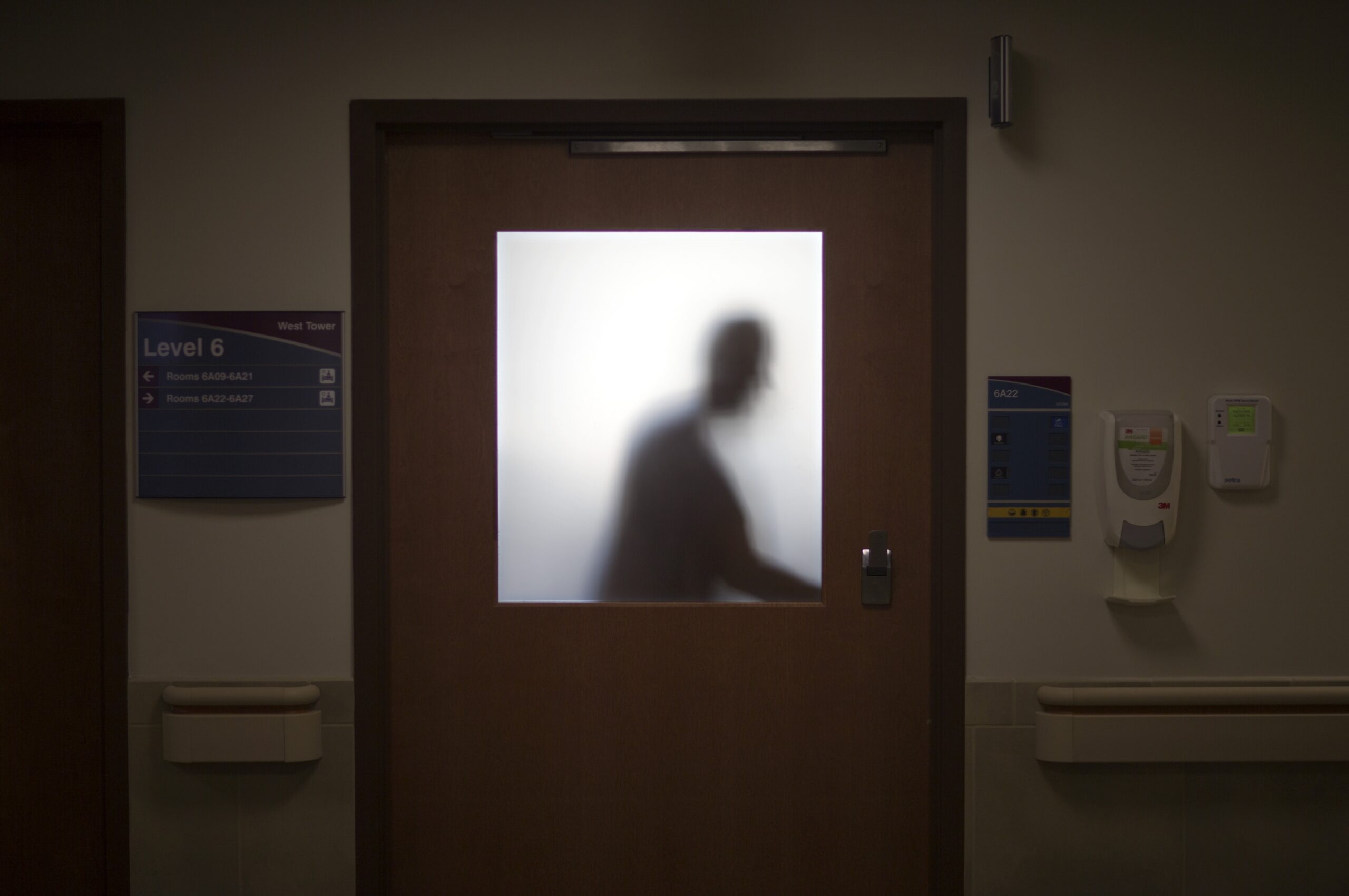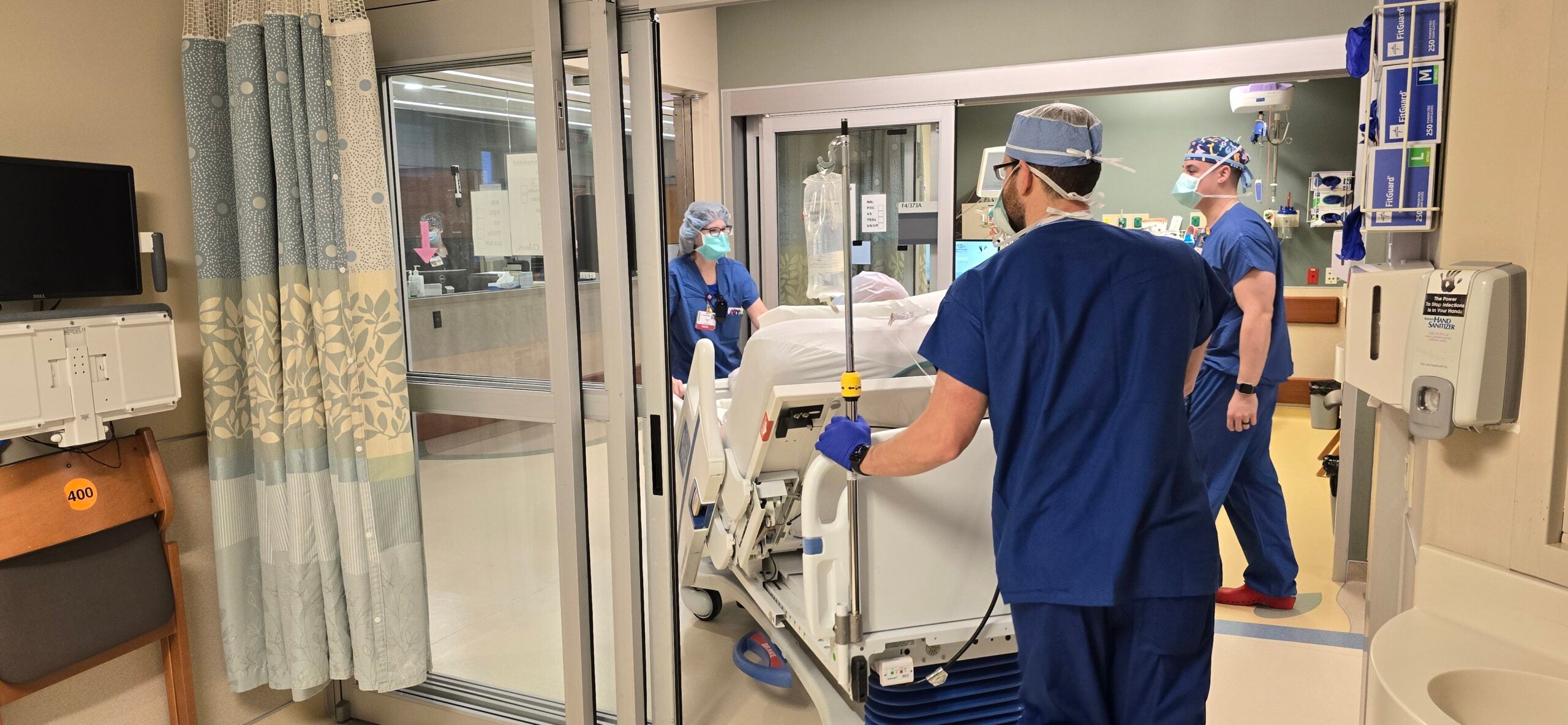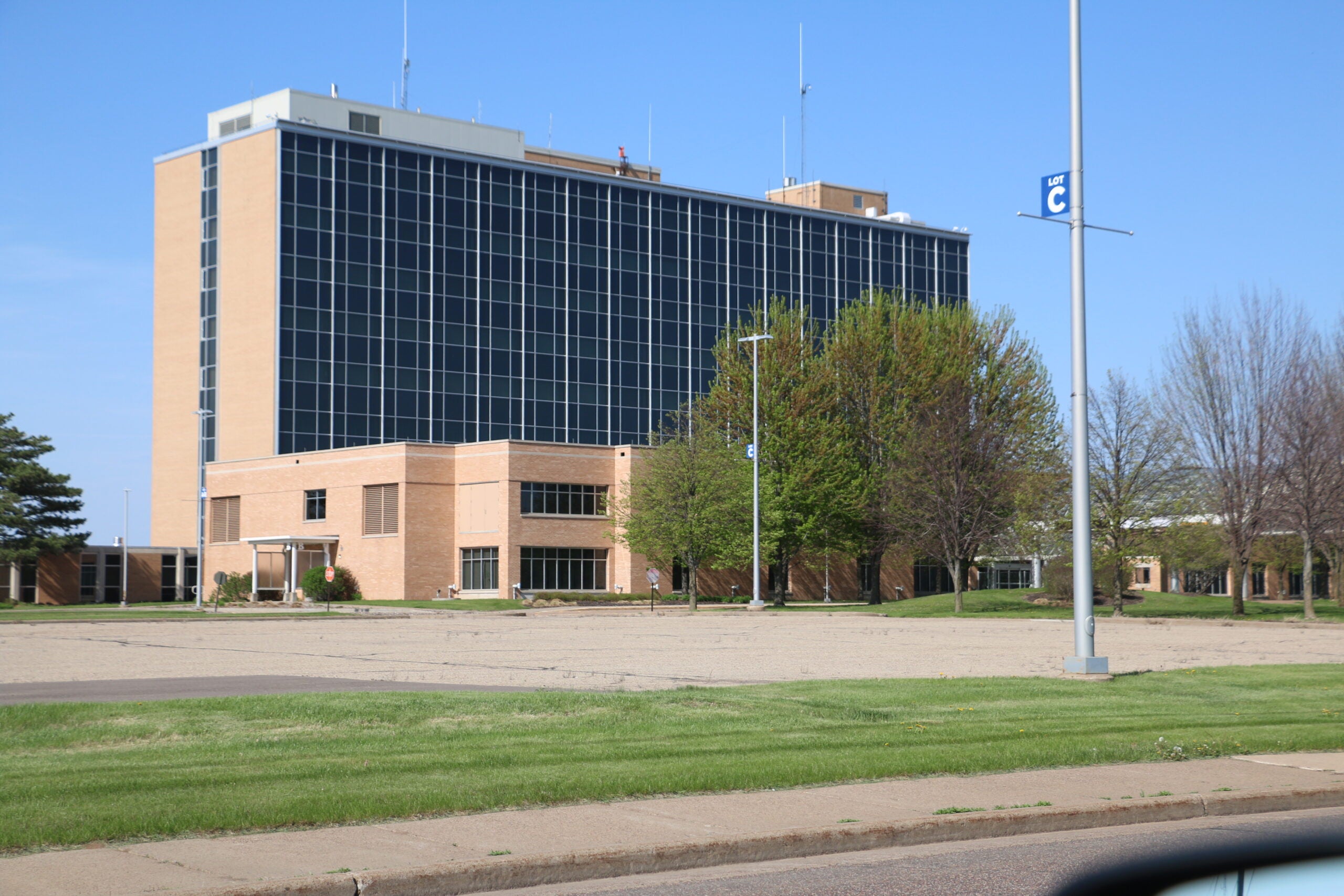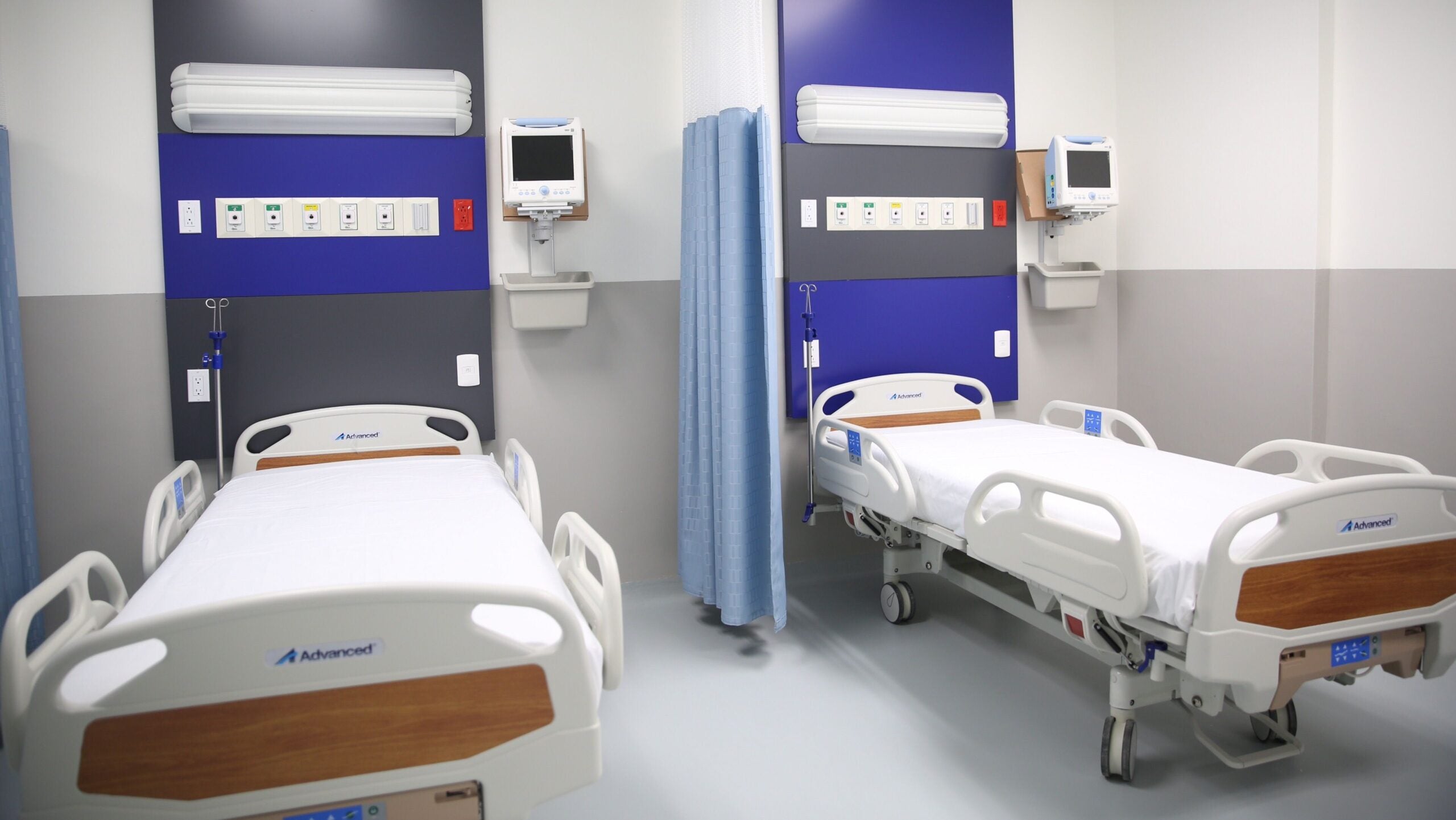Mayo Clinic Health System hospitals in northwest Wisconsin are delaying elective procedures due to “dramatic increases in COVID-19 cases” and the temporary loss of around 200 hospital staff who are sidelined after being exposed to the coronavirus or infected.
On Friday, Mayo Clinic officials in Rochester, Minnesota likened staffing challenges and the surge of COVID-19 cases at northwest Wisconsin hospitals as a “New York City-like situation.” As a result, the health system announced it was deferring elective care at hospitals in the region.
According to the Wisconsin Department of Health Services, the number of daily COVID-19 positive cases has increased by 139 percent over a two-week period ending Oct. 27.
News with a little more humanity
WPR’s “Wisconsin Today” newsletter keeps you connected to the state you love without feeling overwhelmed. No paywall. No agenda. No corporate filter.
Jason Craig, Mayo Clinic Health System regional chair of administration, said the biggest factor in the need to defer elective procedures is the absence of around 200 nurses, technicians and diagnosticians who are quarantining.
“So, as a total percentage, it’s somewhere between 5 and 8 percent of our total staff,” said Craig. “At face value, that may seem like a small number, but the key within that number is when we track various clusters of activity.”
Craig said contact tracing suggests the vast majority of Mayo employees testing positive were exposed not in hospitals or clinics but in the community.
In addition to the loss of healthcare workers, Craig said daily positive rates from testing at Mayo facilities in northwest Wisconsin have exceeded 20 percent of all tests for three straight weeks. Each day, Craig said they process between 150 and 250 new positive tests at regional facilities.
Craig said Mayo Clinic Health System hospitals in Eau Claire and other locations in the northwest corner of the state are delaying some elective procedures and services, like annual physical exams, for between four and six weeks.
“So, we certainly remain open for services,” said Craig. “And by all means, patients with emergent needs should absolutely come in. Those with urgent needs should come in.”
Craig said Mayo Clinic has sent in additional nurses and technicians from places like Minnesota and even Arizona to address the surge of new COVID-19 hospitalizations and the vacancies from employees who are quarantining.
Prevea Health chief medical officer Ken Johnson said the Prevea network, which includes Sacred Heart Hospital in Eau Claire, has not had to bring additional staff.
“But we are getting to a point where soon we may not be able to care for all who come through our doors for whatever healthcare reason because of the community spread of COVID,” said Johnson. “We really need people’s help to help us stop this.”
Johnson said his network of hospitals and clinics is also working with fewer staff because of coronavirus infections, though not enough to delay elective procedures or enlist staff from other regions.
Tammy Simon, vice president of quality improvement and patient safety with Marshfield Health System, said their largest hospital, in Marshfield, has the ability to double the number of beds if the surge of COVID-19 cases continues in northwest and central Wisconsin. But she said they’ve seen between 10 and 15 percent of staff sidelined after contracting the virus in the community.
“So, it’s not a lack of beds,” said Simon. “The challenge is truly of staffing. We have our staff that need to be quarantined, or they have symptoms, or they’re ill, or they’re, you know, they’re positive.”
To help fill the gaps, Simon said staff from Marshfield Health System is shifting resources by training staff at clinics to offer acute care for COVID-19 patients at the larger hospitals.
Simon, Johnson and Craig all stressed that the surge in COVID-19 cases, hospitalizations and deaths is real, and urged members of the public to help health workers address the surge of patients by wearing face masks and not congregating in large social gatherings.
The state Department of Health Services reports the number of people hospitalized for COVID-19 has increased by 77 percent between Oct. 14 and Oct. 27. Across the region, DHS reports that 73 percent of hospital beds are occupied, as are nearly 83 percent of intensive care unit beds.
Wisconsin Public Radio, © Copyright 2026, Board of Regents of the University of Wisconsin System and Wisconsin Educational Communications Board.







